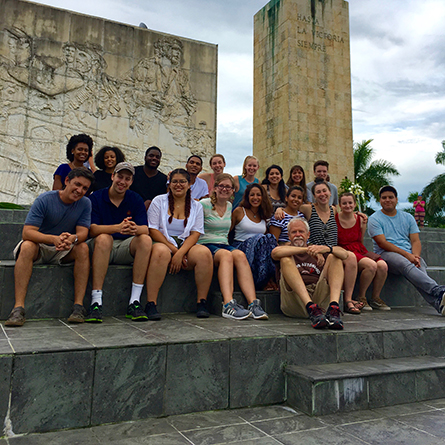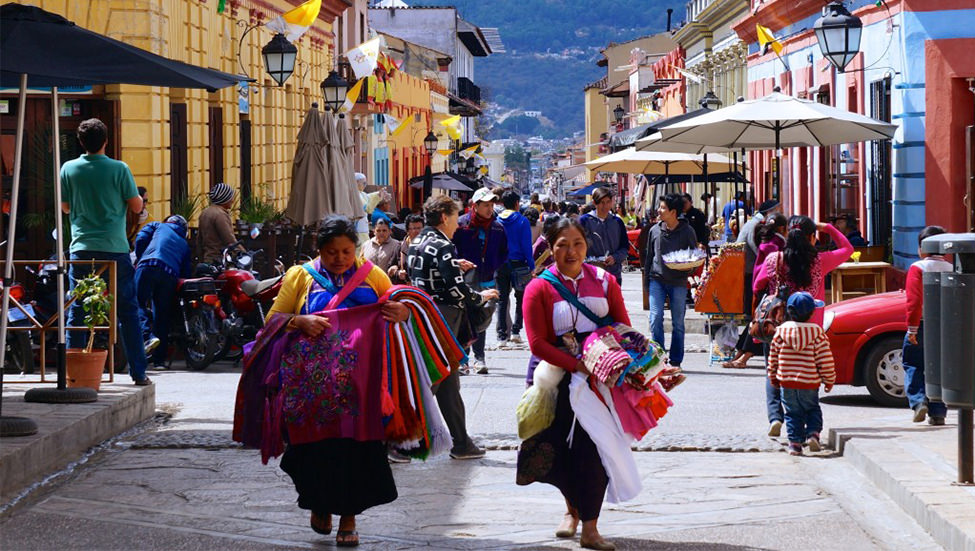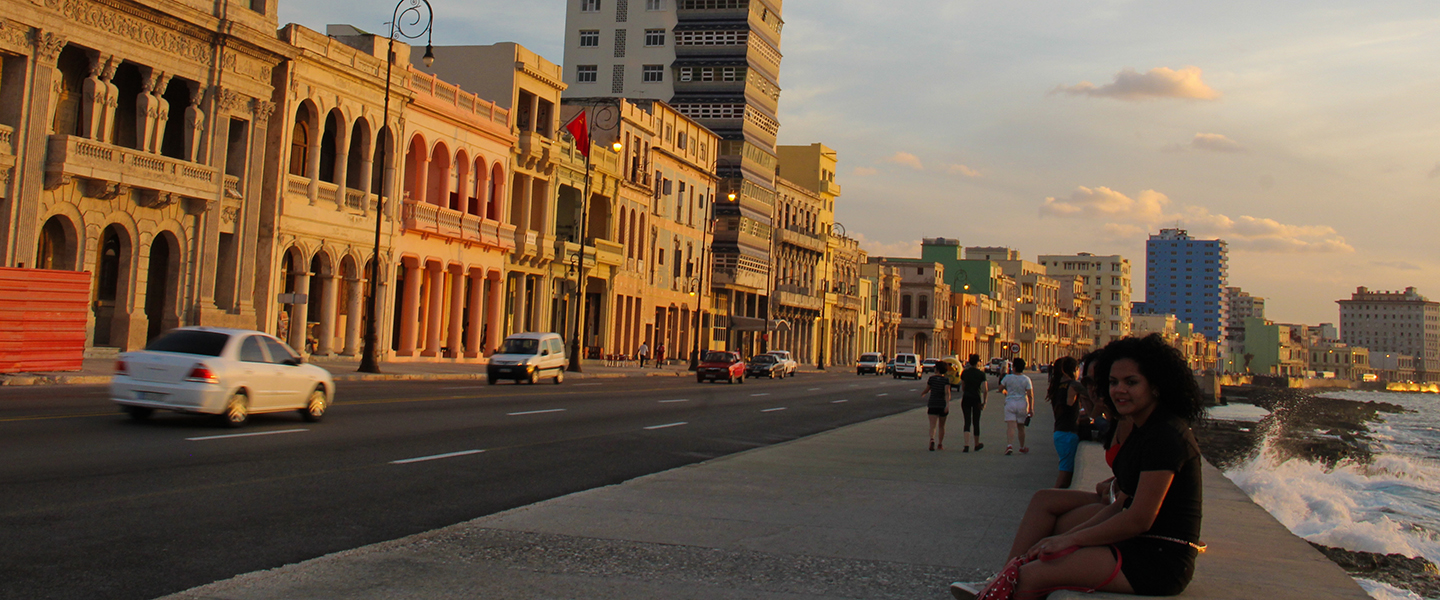
Cuba Libre
A new Study Away Teach Away program at Connecticut College explores the intersection between two distinct revolutions.

While studying abroad in Cuba, Jennifer Cervantes ’17 attended classes at Ciudad Escolar Libertad—a site in Havana symbolic for both its past and present.
“Every morning, we had class in Batista’s home in Havana,” Cervantes said, referring to the military compound of U.S.-backed dictator Fulgencio Batista prior to the Cuban revolution.
For Cervantes, a human development major who wants to pursue a career in education, attending classes at Ciudad Libertad proved to be one of the most impactful experiences in Cuba.
“The location of the school was a powerful symbol to one of the infrastructures that the Cuban revolution of 1959 focused on—access to education for all Cubans and a priority to eradicate illiteracy,” she said.
Providing education for all is one of the lesser-known outcomes of the Cuban revolution, and just one of the takeaways for the group of Connecticut College students taking part in the college’s first Cuba/Mexico Study Away Teach Away program over the fall.
Professor of Education Michael James led the 17 students through the first half of the semester in Cuba before traveling to Chiapas, Mexico. The purpose of the ambitious two-country program was to conduct a comparative study of two distinct revolutions in nations whose populace is still living the outcomes.
In Cuba, the 1959 revolution led by Fidel Castro overthrew Batista and sought to bring stability to a corrupt nation suffering rampant poverty and inequality. One of Castro’s first moves was to convert Ciudad Libertad into a learning complex.
In Chiapas—Mexico’s southernmost state—the Zapatista uprising of the 1990s sought autonomy and protections for the culture and way of life of indigenous Mexicans.
“We chose to study a broadly conceived understanding of revolution from two very different ideological perspectives—hence the semester being split between two countries,” James said.
Conn’s own study abroad program, Study Away Teach Away, was established about 20 years ago. The structure of the program has yielded the freedom to explore new locations each year. The College’s SATA to Vietnam is the longest-running, at 12 years. Another SATA to Cuba in 2013 and led by James was a one-time exploration.
The timing of the Cuba/Mexico SATA for fall 2016 proved especially relevant. The students were still abroad when long-time ruler Castro died on Nov. 25. The group also visited the island nation at a time when the U.S., under President Barack Obama, sought to thaw diplomatic ties and ease some of the long-standing restrictions on air travel and commerce.
In Cuba, the SATA group lived with host families in Marianao, an Afro-Cuban district within Havana, and studied alongside Cuban university students, fostering friendships along the way.
James and his students spent a week traveling throughout the island with Cuban university students and their professors, seeing for themselves some of the positive economic and cultural transformations of what used to be the poorest areas of pre-revolution Cuba.
Over three days, the group also visited the arts community of Korimakao and worked with dancers, artists, musicians and actors, culminating with a visit to the Che Guevara Mausoleum in Santa Clara.
“There are no obvious signs that indicate the political formation of the state in Cuba because it is deeply rooted in the ideology and the way people socialize,” Cervantes said. “There was a strong sense of community that shaped everyone’s role in society.”
Cuba’s revolution ushered in communism, allowing some gains while stifling others. While the new regime prioritized education and health care as a way to combat poverty, political dissent is disallowed while commerce and personal wealth are strictly regulated. This model proved a stark comparison to living conditions in Chiapas, where the SATA group also lived within the local communities.
“The abject poverty of indigenous campesinos in Chiapas has no parallel in Cuba,” James said, describing the battle for universal education, health care and opportunity that has continued even after the Zapatista revolution.
“But we have experienced firsthand the indigenous emphasis on collectivity over individuality, their reliance on subsistence agriculture instead of capitalist development, and how the Zapatistas exercise an alternative form of what they call ‘good government,’ which is independent of the Mexican state.”
But the impact of the several weeks spent in both Cuba and Mexico has left a lasting impression on Cervantes: a deepened and expanded worldview shared with her classmates.
“The experience has taught me to reflect on who I want to be and to understand how my values have shaped my aspirations. If anything, this experience has taught me how much more I want to be a teacher someday.”
January 31, 2017

